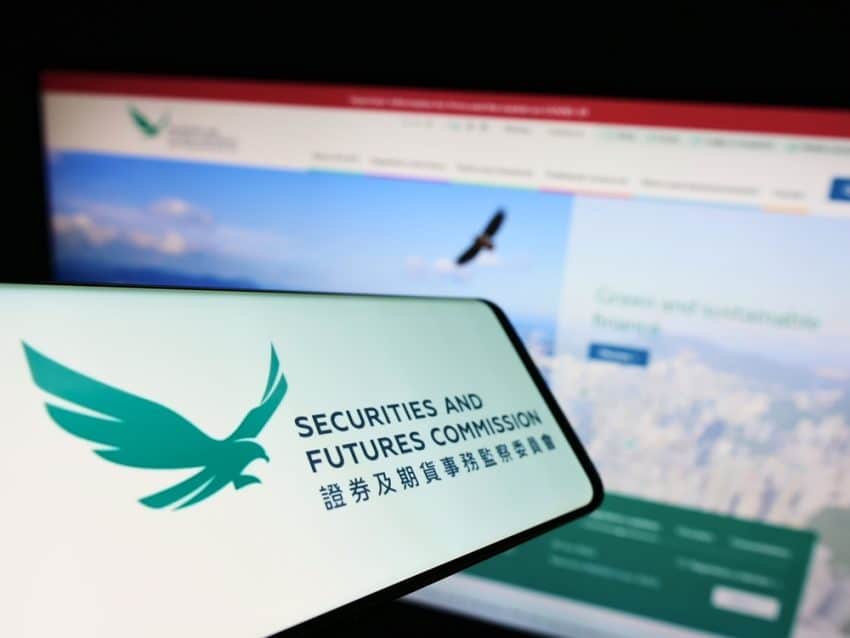
Hong Kong Securities Caution Online Promoters Against the Deceptive Crypto Exchange JPEX
According to the Securities and Exchange Commission, JPEX comprises ‘suspicious features’ deceiving investors about being approved in Hong Kong. The regulatory body is attempting to tighten the control of crypto platforms following an August caution concerning the exchanges making untrue claims.
Hong Kong Regulators Warns Online Influencers Against JPEX
On Wednesday, the Hong Kong Securities and Futures Commission (SFC) cautioned the online promoter concerning the operation of the JPEX cryptocurrency exchange due to ‘dubious features’ and deceptive information concerning its licensing.
According to a statement by the city’s chief financial regulator, untrue or deceptive statements
concerning JPEX applying for a virtual asset trading platform (VATP) permit in Hong Kong were being made by over-the-counter virtual asset money changers and online influencers.
The report indicated that no entity in the JPEX group is permitted by the Securities and Futures
Commission or has applied to the agency for a license to run a VATP in Hong Kong. The SFC advised the investors to be wary of suspicious investment opportunities.
Also, the SFC added that paid promoters, not investment experts, post investment information on social media platforms. They were asked to stop JPEX promotion and its associated products and services in this case.
JPEX Engages in Deceptive Practices
JPEX’s website revealed that the platform is ‘recognized and approved’ to enable virtual assets trading with numerous overseas regulators, which is untrue. A report published on the JPEX website revealed that the troubled crypto exchange was planning to apply
for a permit. The firm claimed it was determined to develop a Web 3.0 community and consistently adhere to guidelines and licensing systems in various places.
The caution by SFC is part of initiatives to tame the city’s unregulated crypto activities. In June, the SFC introduced its VATP governing regime as part of the city’s determination to become a crypto center. Exchanges servicing retail clients were mandated to apply for and acquire proposals within a grace period of one year.
JPEX’s statement comes just over a month after the SFC’s claims that some crypto trading networks were making untrue assertions concerning their adherence to the new regime and offering products and services contravening its guidelines.
The licensing regime will only permit cryptocurrencies with big market capitalizations, for instance, Ether (ETH) and Bitcoin (BTC). According to the JPEX website, the platform provides additional virtual assets, ‘staking’ products, and ‘derivatives.’
The Wednesday notice also revealed additional problems regarding JPEX. As such, the exchange promised the investors significant returns. The latter, the investors encountered challenges during asset withdrawal and untrue assertions concerning the exchange’s partnership with an investment receipt from a firm listed in Hong Kong.
SFC Warns Cryptocurrency Risks in Unregulated VATPs
The Securities and Futures Commission urged local investors to be cautious of risks linked to unregulated VATPs that could lead to funds loss if the platform collapses, becomes insolvent, or is hacked. Their occurrence would result in users being left with minimal options.
Hong Kong to Tighten Crypto Regulation
SFC’s warning comes just weeks after a notification from Duncan Chiu, a Legislative Council member claimed that criminals were exploiting Hong Kong’s support for crypto to conduct unlawful activities and that some investors were printing false and exaggerated advertising information.
The lawmaker said that law enforcement agencies and regulators must avert these kinds of activities and urged the SFC to expose operators lacking the will to apply for permits or lacking permits to prevent the public from transacting with challenging platforms.
The notice by the SFC told investors to confirm its official approved exchanges list, which still entails OSL and HashKey, which were previously involved in the voluntary licensing structure. Additionally, they were also offered a permit upgrade to serve retail investors.
Based on Hong Kong’s Anti-Money Laundering (AML) and Counter-Terrorist Financing laws, through which the implementation of the VATP licensing scheme as an amendment took place, virtual asset fraud may result in a fine amounting to HK$10M (US$1.3M) and a 10-year incarceration.
The Securities and Futures Commission will act against entities and persons failing to adhere to the VATP regime, which includes those participating in the violations.




